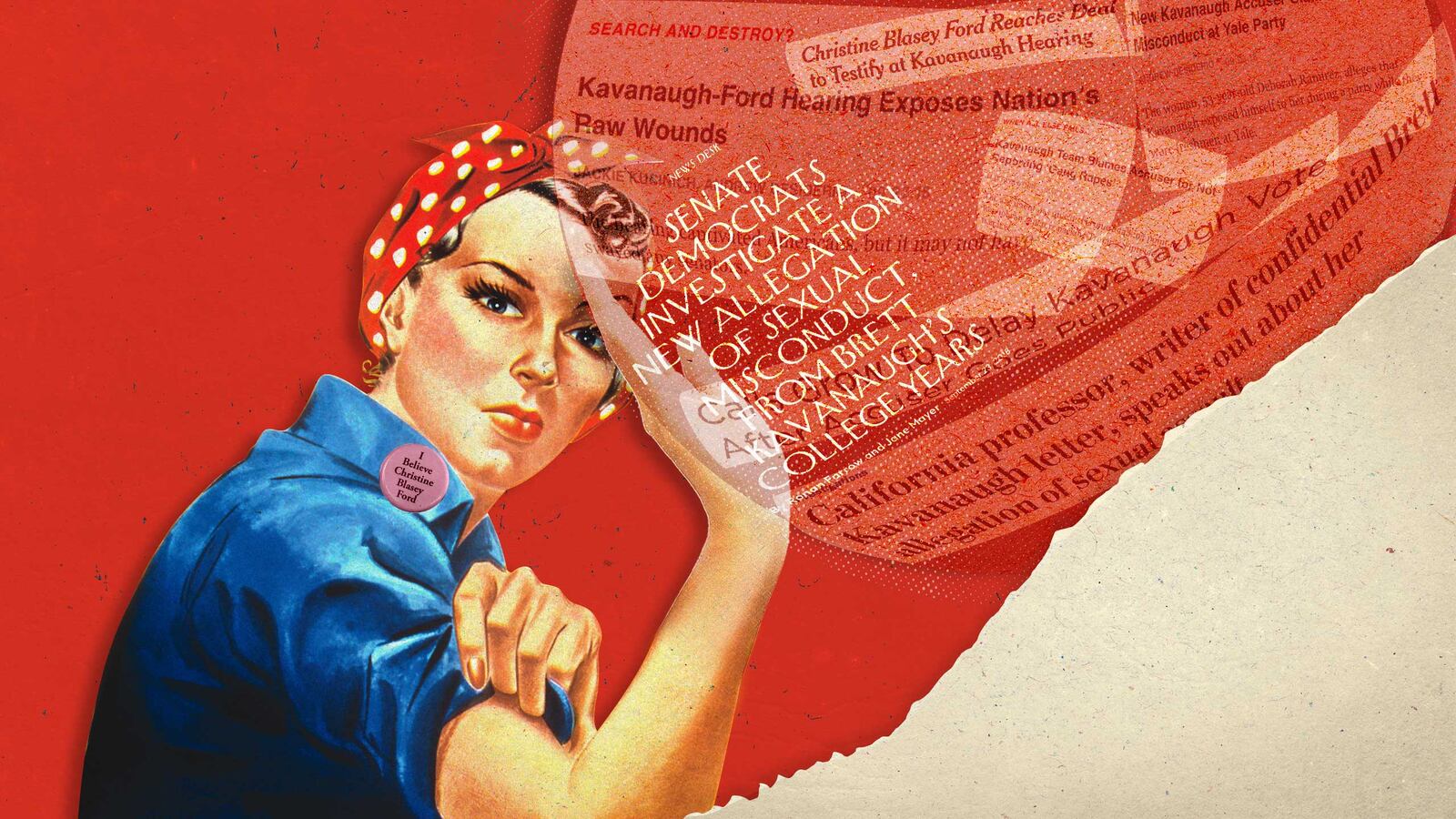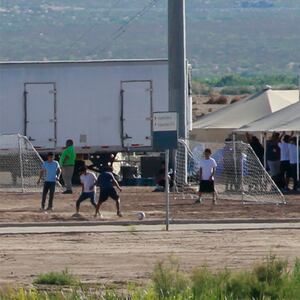In the era of Trump, it’s often tempting to give in to despair. The news seems full of indignities, old ones you didn’t bother to learn about when they first surfaced, exacerbations of the worst instincts of the American polity, and entirely new iterations of human pain. The present is grotesque; the past filled with grim secrets that hid in the plain sight of our apathy; the future surely filled with fire and flood.
What makes despair so particularly tempting is the seemingly immovable will of the few in power. Patrick Blanchfield, a leftist writer, has called our system of government a “gerontophallocracy”—a polity led by old white men—and he isn’t wrong.
This week, the gerontophallic Senate Judiciary Committee moved forward the nomination of Brett Kavanaugh, a man profoundly unpopular with the general public, under a cloud of alleged sexual misconduct, and despite the hue and cry raised by activists and sexual abuse survivors. The march of the elites—to pillage from the public at will while imposing theocratic laws on our bodies—seems unstoppable, public will irrelevant, personal action laughable.
In such a context, hope feels counterintuitive: what evidence is there, after all, that things can and will change? There is more empirical data in support of paranoia, sorrow, and detachment than hope; the sea seems poised to swallow us, the great heat to devour what’s left, while the rich crow in their gilded fastnesses. It is an era in which scaling the mountain of bad news feels Sisyphean, a trudge that only ever leads to more horror, and any height scaled merely enlarges the landscape of cruelty in view.
But let’s linger for a moment on Sisyphus, the Greek figure whose curse to eternally roll a boulder up a mountain, then retrieve it and begin again, has come to symbolize pointless, unending drudgery. It’s as good a time as any to revisit his most famous philosophical appearance, in Camus’ The Myth of Sisyphus, written at the height of World War II, in 1942. The essay itself is one of the best-known works of modern philosophy, so there is no need to reiterate it at great length here. The Myth of Sisyphus posits that the most logical response to the certain knowledge that one will die and fade into oblivion is suicide, but that “the absurd man”—Camus’ hero, embodied by Sisyphus himself—accepts this fate fully, and rejoices in it. “The struggle itself toward the heights,” Camus writes, “is enough to fill a man’s heart.”
The Myth of Sisyphus has taken its place in an august body of existential philosophy, along with Camus’s own The Stranger, and Sartre’s Nausea and Being and Nothingness; nowadays it is most often received as part of a set, given to students whose task is to delve into academic abstractions. And yet the circumstances of its publication belie such a reception. After all, it was published after Camus had voluntarily returned from his native Algeria to Nazi-occupied France, and had joined the efforts of the French Resistance, editing the Free French newspaper Combat.
Most of France was led by the Vichy French, who worked in concert with the Nazis. The Resistance was smaller in territory and numbers than its foes, its struggle mortal. It is in this context that Camus’ salvo on the joy that can be found in futile struggle was born: the context of a fight for freedom against overwhelming odds.
To live in a time such as this—in which children are separated from their parents and incarcerated; in which racism and spite and greed and theocratic zeal seem the only animating forces of our government—it is worth remembering that there have been worse and blacker times, and there were those, even then, who fought on in the bilious dark.
Camus skillfully evokes the image of Sisyphus’s boulder: he describes “the cheek tight against the stone, the shoulder bracing the clay-covered mass, the foot wedging it…. the wholly human security of two earth-clotted hands.” He writes that Sisyphus, rejoicing in full consciousness of his tragic fate, comes to know that “each atom of that stone, each mineral flake of that night filled mountain, in itself forms a world.”
For those of us marooned neither at the whim of Hades, nor in the forests filled with Vichy henchmen, there is even more room for such joyous cognizance, even more ability to clot our hands with the good earth of our work. Against despair, we can position the knowledge that our pain and our labor are shared.
Camus’ Sisyphus is an embodiment of the joy that is possible in hopelessness. There are indeed many causes that are hopeless now, for the time being and perhaps for some time: we know, for example, that under this government, social progress will be violently reversed, environmentalism undercut by predatory delay, police brutality given carte blanche, institutions that were never equitable made even less so daily. And, yet, it is possible to look around us and consciously—with a discipline of the mind that may seem at times beyond our strength—manufacture hope, and use it as an impetus forward.
Hope and optimism are not synonyms.
Certainly I do not advocate hope through blindness, hope through ignorance of others’ pain, the false and ugly hope that comes through reneging duty and accepting a hideous status quo. Rather I say that the decision to hope is the decision to place one’s hands on the boulder and push it forward, in the knowledge that on other hills, in other places, similar hands are working in concert.
There is hope that arises in and of itself from the decision to wake, the decision to work, the decision to write, the decision to speak. With our hands pressed to the clay of duty— a citizen’s duty to shape their country, to fight back against the ways it errs, and to create small increments of justice through that work—we strain against the weight together and it lessens.
If the mass of the rock seems impossible, if its surface is pitted and scarred, there are other hands to press against its weight. And so hope is a cairn we build together, and it marks a path to the world we wish to see.








